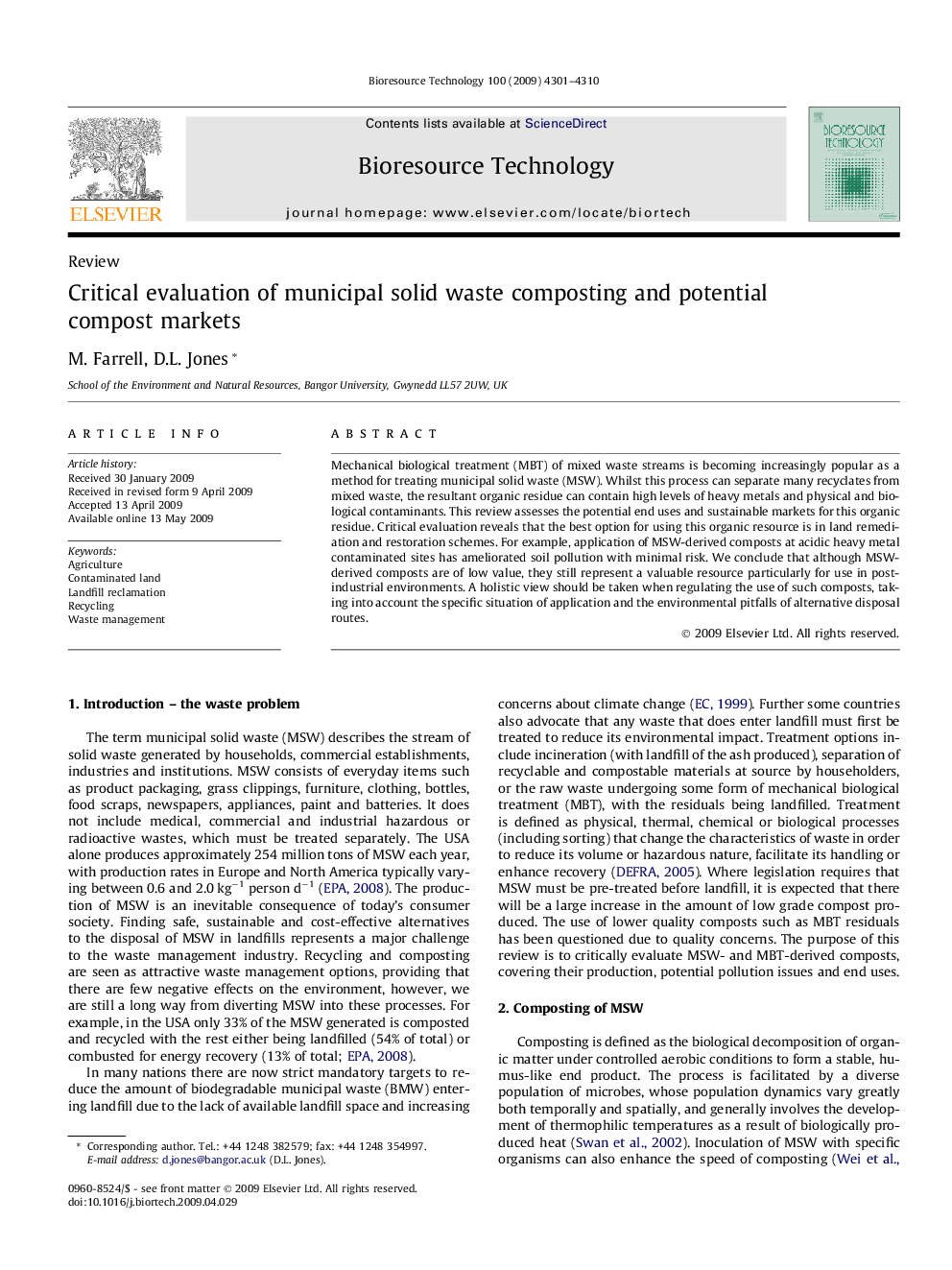| Article ID | Journal | Published Year | Pages | File Type |
|---|---|---|---|---|
| 684298 | Bioresource Technology | 2009 | 10 Pages |
Abstract
Mechanical biological treatment (MBT) of mixed waste streams is becoming increasingly popular as a method for treating municipal solid waste (MSW). Whilst this process can separate many recyclates from mixed waste, the resultant organic residue can contain high levels of heavy metals and physical and biological contaminants. This review assesses the potential end uses and sustainable markets for this organic residue. Critical evaluation reveals that the best option for using this organic resource is in land remediation and restoration schemes. For example, application of MSW-derived composts at acidic heavy metal contaminated sites has ameliorated soil pollution with minimal risk. We conclude that although MSW-derived composts are of low value, they still represent a valuable resource particularly for use in post-industrial environments. A holistic view should be taken when regulating the use of such composts, taking into account the specific situation of application and the environmental pitfalls of alternative disposal routes.
Related Topics
Physical Sciences and Engineering
Chemical Engineering
Process Chemistry and Technology
Authors
M. Farrell, D.L. Jones,
